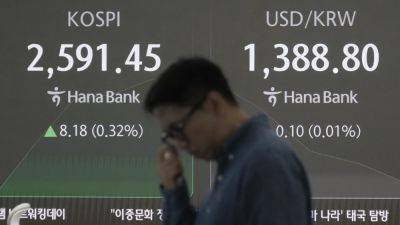What does a shocking parliamentary loss for Japan’s long-ruling party mean?
TOKYO (AP) — Japanese Prime Minister Shigeru Ishiba’s ruling party and its junior partner lost their majority in Sunday’s parliamentary election. The loss, much bigger than expected, is bad news for a leader who’s only been in power for a month.
It’s largely a reflection of voters’ anger at the repeated financial scandals that have hit the Liberal Democratic Party, which has ruled Japan nearly without interruption since 1955.
The big loss throws the nation’s politics into turmoil, and will make it difficult for Ishiba to push through the changes he needs to win back voter support.
The Associated Press explains how the election results could weaken Ishiba’s hold on power, and what the poor showing means for Japan’s diplomatic, economic and security goals.
What happened Sunday?
The governing Liberal Democratic Party lost its sole majority in the lower house, the more powerful of Japan’s two-chamber parliament.
Even adding the Buddhist-backed Komeito party, which has partnered with the LDP for a quarter century, Sunday’s showing failed to meet Ishiba’s goal of retaining a majority in the 465-seat chamber.
The LDP saw a number of veteran lawmakers lose their places in parliament, including a current agricultural minister and other heavyweights who have served in key Cabinet and party posts.
Sunday’s election was also a disaster for Komeito, which was embroiled in scandal; its new leader, veteran Keiichi Ishii, lost his seat.
The main opposition Constitutional Democratic Party of Japan, meanwhile, made huge gains, adding 50 seats, but it doesn’t have enough to take power. To build a big enough coalition to do so, it would have to join forces with the other opposition parties, from communists to conservatives.







